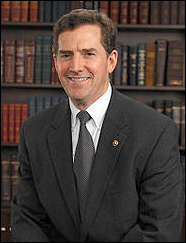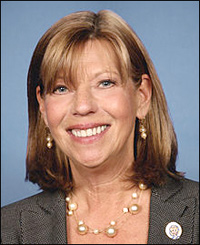Some district updates from around the country:
LA-3
The final 2012 House campaign is nearing a conclusion. Under Louisiana law, if no candidate receives a majority of the vote on Election Day, a run-off between the top two finishers, regardless of political party affiliation, is to be held at a later date. That time, in the case of the LA-3 contest between Republican Reps. Charles Boustany (R-LA-7) and Jeff Landry (R-LA-3), is a week from Saturday, Dec. 8. The two incumbents were forced into one southwest Louisiana district because the state lost a seat in reapportionment. Seventy-six percent of the new 3rd District comes from Boustany’s current 7th CD.
A newly released poll, from Red Racing Horses/PMI (Nov. 27-29; 600 likely LA-3 voters), gives Rep. Boustany a 51-33 percent lead over Landry. In the original election among five candidates (three Republicans, one Democrat, and one Libertarian), Boustany placed first with 44.7 percent of the vote versus Landry in second tallying 30.1 percent, a difference of 45,596 votes from 311,393 ballots cast. Boustany looks to be in strong shape in terms of past performance, polling spread, and geography, but a substantially lower Dec. 8th turnout could yield a much closer electoral affair.
IL-2
As predicted, the Illinois legislature just passed a bill that will move the IL-2 special general election to April 9 from March 19. Under Illinois election law, the seat must be filled within 155 of the vacancy occurring, hence the original schedule. But, with local and municipal elections already scheduled for April 9, it made financial and practical sense to combine all of the contests on the one date. Gov. Pat Quinn (D) will sign the bill.
In this case, the general election is a mere formality as the Democratic primary winner will easily hold this seat. The date of that first election, Feb. 26, does not change. It is here that Rep. Jesse Jackson Jr.’s replacement will effectively be chosen.
The Democratic field now stands at seven candidates, which includes former US representatives Debbie Halvorson (D-IL-11) and Mel Reynolds (D-IL-2), state senators Donne Trotter, Toi Hutchinson and Napoleon Harris, Cook County CEO Robin Kelly, and Chicago Alderman Anthony Beale. Pastor Corey Brooks and Chicago Alderman Will Burns have removed themselves from consideration.
CA-51
Another vacancy has occurred in the House, but only until the new Congress convenes. This means one less vote for the Lame Duck session. Rep. Bob Filner (D) resigned from Congress to officially become mayor of San Diego, a position he won in the November general election. His replacement in Congress, state Sen. Juan Vargas (D), will take office as a regular-term freshman in January.
MO-8
A quirk may soon occur in the race to succeed outgoing Rep. Jo Ann Emerson (R). Lt. Gov. Peter Kinder has reportedly asked Republican Party leaders to consider appointing him as the replacement Republican nominee. The local county committees from both parties will choose nominees in lieu of a special congressional primary.
The succession process for filling a vacancy in the office of Missouri lieutenant governor is unclear. Therefore, it is quite possible that Gov. Jay Nixon (D) will be able to appoint Kinder’s replacement should the latter be elected to Congress in the yet-to-be-scheduled special general election. If Nixon appoints a member of his own party, which is a certainty, the Democrats would then control every statewide constitutional office despite the state’s strong tilt to the right in federal elections. This would leave Sen. Roy Blunt as the sole Missouri Republican statewide elected official.






